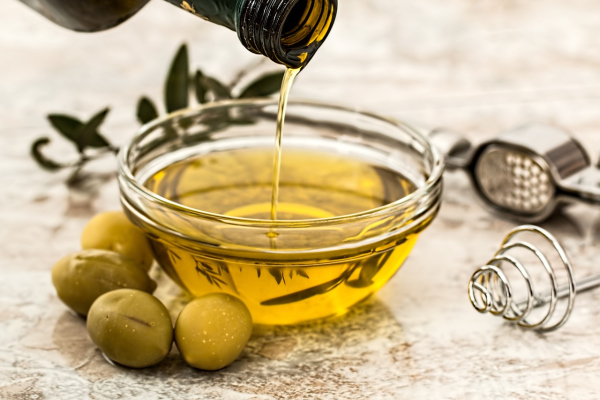 |
The Finest Harvest in Every Bottle:PDO/DOP Certified Extra Virgin Olive Oils |
 |
The Finest Harvest in Every Bottle:PDO/DOP Certified Extra Virgin Olive Oils |

Olive Oil Grades ExplainedExtra Virgin Olive Oil (EVOO)Extra virgin olive oil (EVOO) is the highest quality olive oil available. It is made from the first cold pressing of fresh olives without the use of chemicals or excessive heat. EVOO has a superior taste, rich aroma, and high levels of antioxidants and healthy fats. To be classified as EVOO, the oil must have an acidity level of less than 0.8% and pass strict sensory evaluations for flavor and aroma. Virgin Olive OilVirgin olive oil is also produced from the first pressing of olives but has slightly higher acidity levels, typically up to 2%. While it retains many of the beneficial properties of EVOO, its flavor and aroma may not be as refined. Virgin olive oil is suitable for cooking and baking but is less commonly found in stores compared to EVOO. Refined Olive OilRefined olive oil is obtained from virgin olive oils through a refining process that removes defects and neutralizes flavors. This process involves heat and chemicals, which strip away some of the oil's beneficial compounds. Refined olive oil has a higher smoke point and a neutral taste, making it suitable for high-heat cooking and frying. However, it lacks the rich flavor and health benefits of EVOO. Pure Olive OilPure olive oil, also known as simply "olive oil," is a blend of refined olive oil and a small amount of virgin olive oil. This blend gives it a mild flavor and higher smoke point, making it versatile for cooking. However, it does not offer the same health benefits or flavor complexity as EVOO or virgin olive oil. Olive Pomace OilOlive pomace oil is made from the residue left after the initial pressing of olives. This oil is extracted using solvents and refined to remove impurities. Olive pomace oil has a high smoke point and is commonly used in commercial food preparation. It is the lowest grade of olive oil and lacks the flavor and nutritional benefits of higher-grade oils. Light and Extra Light Olive OilDespite the name, light and extra light olive oils are not lower in calories. The term "light" refers to the color and flavor of the oil, which are lighter due to extensive refining. These oils are suitable for cooking and baking where a neutral flavor is desired, but they do not offer the health benefits of less processed olive oils. Expert ClarificationOlive oil producer Maria Santorini explains, "Understanding the different grades of olive oil helps consumers make better choices based on their cooking needs and preferences. While EVOO is the best choice for health and flavor, other grades have their own applications in the kitchen." How to Choose the Right Grade for Your NeedsSelecting the right grade of olive oil depends on your intended use. For dressings, dipping, and finishing dishes, choose extra virgin olive oil for its superior flavor and health benefits. For sautéing and baking, virgin or pure olive oil can be suitable. For high-heat cooking and frying, refined or light olive oil may be the best option due to their higher smoke points. Learn how to select the best EVOO in our Buyer’s Guide. Discover the health benefits of EVOO in Health Benefits of Extra Virgin Olive Oil and understand the extraction process in The Science Behind Extra Virgin Olive Oil Extraction. |
Disclaimer: Some articles on this site mention various health benefits of extra virgin olive oils. Some of the benefits have been researched and some are from individual's personal experiences. In any case, these articles are not intended to act as a medical reference. If you are using, or are considering using olive oil for specific health related issues, you are advised to speak with your health care provider for advice pertaining to your situation. These articles are for educational purposes only.